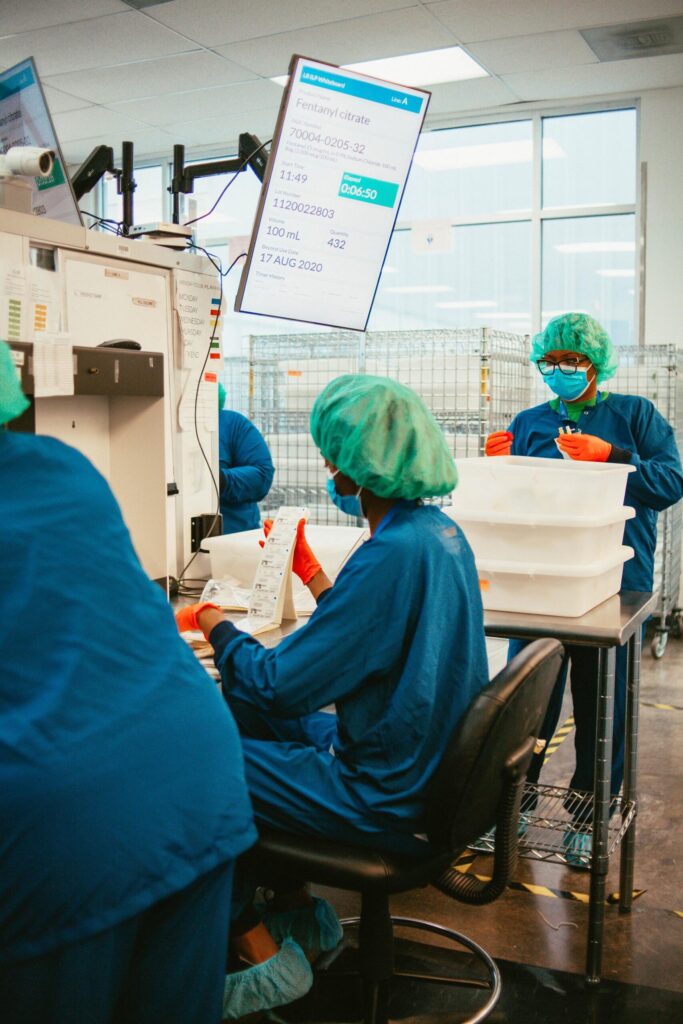News from Our
Thinking of compounding in-house? Don’t forget to calculate these three “hidden” costs.

SCA Pharma is taking a look at how hospitals choose to supply their compounded drug products. Many choose to produce what they need internally – called insourcing – while others use a provider like us – outsourcing.
This second blog post in a 3-part series examines the unseen costs of insourcing vs. outsourcing with a goal of highlighting what hospitals aren’t looking at as they make this critical decision.
Direct Costs that are Often Overlooked
When deciding how best to supply drug products, hospitals look at a number of factors, and a primary one is the direct cost of producing those products in-house. Direct costs include raw materials, technician and pharmacist salaries as well as clean room or facility costs.
We have found that even if the direct costs of compounding seem to indicate that insourcing is a better option, hospital pharmacies still incur other direct costs that could change their decision-making process.
- Waste and Disposal Issues
Hospitals and pharmacies across the U.S. lose billions of dollars every year from disposing of unused or expired medications, including leftover medications from cancer treatments and pain management efforts.
Not only is this waste costly, properly disposing of those drugs adds to the expense. Waste disposal is time consuming – requiring audits to see if the facility meets local, state and federal requirements – as well as following all of the proper procedures. Many facilities choose to develop their own waste disposal program, a process that adds cost to the insourcing process by requiring program development and education expenses.
- Labeling and Sealing
Hospital pharmacies must have processes in place to make sure that compounded products are properly sealed and labeled. Unclear labeling is an important cause of medication errors, and adverse drug events often occur due to inadequate or ineffective systems of labeling. Standard processes must not only identify the medication, but also communicate instructions for dispensing. Not only should there be standard labeling and sealing guidelines, but the pharmacies should have practices in place for training of dispensers on good labeling practices, as well as procedures for efficient and properly sealed pouches. Again, such practices require dedicated man hours to develop and evaluate, which adds to the direct costs of insourcing compounded medications.
- Technician Availability and Expertise
According to The ePharmacy Technicians, pharmacy technicians in a hospital are expected to have a greater working knowledge of medications than retail pharmacy technicians. They also have to understand more medical terminology because they may be required to read and update patient charts. Although they do work under the supervision of a licensed pharmacist, they are expected to work more independently than retail pharmacy technicians. They must also know how to create compounded medications, IV fluids, and nutritional mixtures. Because of the experience and job requirements, hospital pharmacy technicians enjoy higher salaries and better benefits than those working retail pharmacies. But this experience and ability is also a combination that can be hard to find, so hiring can be difficult.
Skilled pharmacy technicians are also being asked to do more and more as part of their daily workload than ever before. Following procedures, setting up protocols and managing patient histories takes time that could be used to produce the compounded drugs needed by the hospital, leading to a backlog of work.
Paying for overtime, hiring additional technicians, and offering higher salaries and continuing education are all direct costs that often don’t get included in the hospitals’ formula for determining whether to insource or outsource compounded products.




